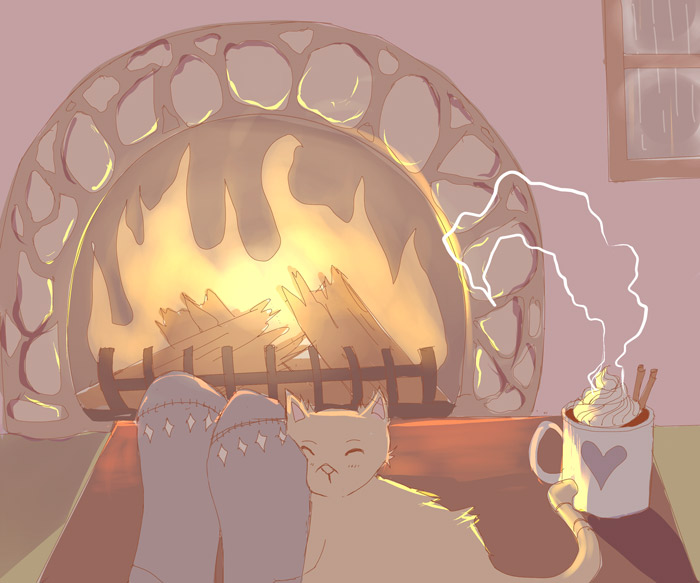The social interactions of everyday life exhaust me. Oftentimes, I would rather observe commotion unfold before me than engage in it. Due to our reserved nature, introverts like myself are frequently asked if we are okay when, in reality, we are happily minding our own business. Although the people asking these questions generally mean well, they make me wonder whether my natural disposition is somehow unfit for my environment.
Western society has always expected that women be approachable, chatty, and outgoing in social situations. However, I have learned that it is fine not to pretend to have any of those traits just to gain the validation of my peers. At social gatherings, I find myself hiding in the host’s bedroom, leaving early, or staying in one corner of the room, with no desire to network or strike up a shallow conversation. This is not to say I am unkind or hostile; I am just not interested in talking about superficialities like the snow, how classes are going, or which Netflix shows we are watching. After lengthy periods of socializing, I need some downtime, either spent alone or with one or two close friends.
In a world run by extroverts, I often feel that my capabilities are overshadowed by my peers’ forwardness in the classroom, on teams, or during group work. Those who earn leadership positions are usually outspoken, as they gain the trust of others more easily. Extroverts are more recognized because of their affable nature, while introverts struggle to break out of their personal space and are consequently perceived as cold.
It is more difficult for me to prove my skillset in a group, however, I have realized that the affirmation of my capabilities is not necessary for me to make an impact. While it has always been frustrating to watch leadership positions be given to those able to make an impression, I now find my place in settings that prioritize the quality of one’s ideas. As a student conducting research in a life-science laboratory, I found a place that does not stress the importance of extroversion. Scientific research does not have to be done out loud, therefore, allowing reserved voices to investigate revolutionary ideas in peace. Although extroverts often have an advantage, even in science, I feel more powerful presenting data than when sharing my opinions on politics. In the end, what changes the world is not how people present themselves but rather the actions they take and the relationships they build.
“This is not to say I am unkind or hostile; I am just not interested in talking about superficialities like the snow, how classes are going, or which Netflix shows we are watching. After lengthy periods of socializing, I need some downtime, either spent alone or with one or two close friends.”
Although I have a low tolerance for frivolous interactions, I do value genuine relationships and care about those around me. I prefer forming new friendships in less clamorous settings, where I can focus on learning about a person’s more important experiences. While speaking out in a group seems effortless for extroverts, it takes a lot of energy from me, and when I do, I find my voice drowned out by those around me. Both introverts and extroverts hold ideas that are worthwhile and it is beneficial for everyone to make space for their ideas to come through.
Naturally, I am a listener and a thinker rather than a speaker. However, my silence does not mean that I have no opinions. Although I speak up when I have something important to say, I prefer to reflect before speaking. Frankly, the conspicuous voices of extroverts that dominate the room deter introverts from expressing themselves. Although I am introverted, I do want to share my thoughts, be acknowledged for my work and have insight to bring to the table. People should be more cognizant of the ideas being left behind when louder voices eclipse those that may be more reserved. Words are powerful, but silence does not correlate with inadequacy.








